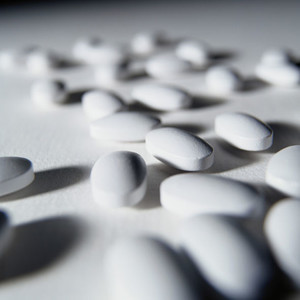The relevant European guideline states that if the reference medicinal product has more than one indication, the efficacy and safety of a biosimilar has to be justified, if necessary by demonstrating it separately for each indication claimed. The guideline brings up the possibility of ‘extrapolating’ efficacy (granting several clinical indications that are licensed for the reference product, although only one of the indications has been studied in the clinical development programme of the biosimilar). This would not be done without serious consideration. The mechanism of action of monoclonal antibodies (mAbs) is usually complex and in many cases only partially understood.
What clinical trials will be required for biosimilar mAbs?
Biosimilars/Research
|
Posted 25/08/2010
 0
Post your comment
0
Post your comment

This problem is exemplified by the tumour necrosis factor alpha (TNF-alpha) antagonists Enbrel and Remicade. Etanercept is a fusion protein consisting of the p75 binding unit of the TNF-alpha receptor and the Fc portion of human IgG1 while infliximab is a chimeric anti-TNF-alpha IgG1 antibody. Remicade is efficacious in Crohn’s disease, whereas Enbrel is not. Their shared mechanism of action (TNF-alpha antagonism) does not grant efficacy in similar indications. It might even be possible that ‘less important’ attributes of the mAb molecule, such as glycosylation or microheterogeneities, add to its potency. What is true for innovator mAbs will also be true for biosimilar mAbs.
So extrapolation of efficacy from one indication to another one will be on a case-by-case basis. As more becomes known about a mAb, the prediction of efficacy in new clinical indications should improve. A hypothetical scenario for an abridged development programme could be a comparative clinical study in a clinical condition where the reference product is licensed and where a sensitive and rapidly measurable clinical endpoint exists. In this scenario, would it be possible for other indications to be justified by extrapolation or by short-term efficacy studies using surrogate clinical endpoints? Such scenarios are without precedent and would require discussion with regulators.
It is one thing to require a trial for efficacy in a particular clinical indication. If equivalence/non-inferiority studies were required against a reference product they might require many more patients than stand-alone trials showing efficacy. This would depend on the attitude of regulators toward the specific biosimilar product.
Experience so far with biosimilars shows that similar efficacy does not necessarily imply similar safety. Immunogenicity is among the primary concerns for the biotechnological medicinal products currently being developed as biosimilars (insulin, granulocyte colony stimulating factor, growth hormone and erythropoietin). The dramatic development of pure red cell aplasia in patients after one manufacturer of recombinant erythropoietin changed the manufacturing process was a lesson for developers of originator and biosimilar molecules alike. Immunogenicity will probably have to be evaluated for each indication separately.
(see also The current EU regulatory framework governing biosimilars, Technical challenges in defining mAbs
and How far does similarity go?)
References:
Schneider CK, Kalinke U. Toward biosimilar monoclonal antibodies. Nat Biotechnol. 2008;26(9):985-90
European Medicines Agency (EMA), Committee for medicinal products for human use (CHMP), Guideline on similar biological medicinal products containing biotechnology-derived proteins as active substance: non-clinical and clinical issues, CHMP/BMWP/42832/200, London, 22 February 2006
European Medicines Agency (EMA), Human Medicines, Remicade
Sandborn WJ, Hanauer SB, Katz S et al. Etanercept for active Crohn's disease: a randomized, double-blind, placebo-controlled trial. Gastroenterology 2001;121 (5):1088–94
Casadevall N, Nataf J, Viron B. et al. Pure red-cell aplasia and antierythropoietin antibodies in patients treated with recombinant erythropoietin. N Engl J Med 2002 346(7), 469–75
European Medicines Agency (EMA), Committee for medicinal products for human use (CHMP), Guideline on immunogenicity assessment of biotechnology-derived therapeutic proteins, CHMP/BMWP/14327/2006, London, 13 December 2007
News
EMA recommends approval for insulin glargine biosimilar Ondibta and denosumab biosimilar Osqay
FDA approves denosumab biosimilars Osvyrti and Jubereq, Boncresa and Oziltus
General
Samsung Bioepis wins Pyzchiva case; Regeneron patent rulings threaten foreign biosimilars
Chinese biosimilars go global: growth, partnerships, and challenges
What is the future for the US biosimilar interchangeability designation

Biosimilars/Research Posted 05/06/2025
Biosimilar clinical efficacy studies: are they still necessary?

Biosimilars/Research Posted 27/05/2025
The best selling biotechnology drugs of 2008: the next biosimilars targets








Post your comment